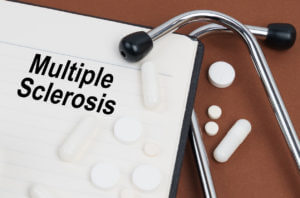Multiple sclerosis is a chronic, unpredictable disease of the brain and central nervous system. It affects about one million people in the United States alone. MS can significantly impact an individual’s physical and mental well-being, making effectively managing MS symptoms absolutely essential to having a complete and fulfilling life. How can you live your best
Read MoreThe Role of Occupational Therapy in Managing Parkinson’s Symptoms
Parkinson’s disease is a degenerative disorder of the nervous system that affects movement. It is a condition that progressively worsens over time, making it challenging for individuals to perform basic tasks such as brushing their teeth, getting dressed, and even standing up. While there is currently no cure for Parkinson’s disease, there are several ways
Read MoreSpeech and Language Therapy for Cerebral Palsy
Speech disorders are common in individuals with cerebral palsy. This is why speech and language therapy for cerebral palsy is a necessary and highly valuable intervention. Speech and language therapy targets the challenges in communication that accompany cerebral palsy. The goal is to enhance the individual’s ability to express himself or herself. In this article,
Read MoreMental Health and MS: Addressing Depression and Anxiety
Multiple sclerosis (MS) is a condition that affects the system of nerves, which facilitates communication between the brain and the rest of the body. The neurological condition not only affects physical health but can also have a significant impact on mental well-being. Depression and anxiety are common among individuals living with MS, which can affect
Read MoreAssistive Technology for Cerebral Palsy: Tools for Independence
Cerebral palsy is a neurological disorder that can make individuals who have been diagnosed with it experience challenges with relation to movement and communication. People who have cerebral palsy often need assistance with everyday tasks, which means a lot of them are unable to live independently. However, with the help of assistive technology, individuals with
Read MoreDecoding Disease-Modifying Therapies (DMTs): How They Work and Common Types
Disease-modifying therapies (DMTs) are advanced treatments used to slow down the progression of diseases. The aim of DMTs is to target the pathology of the disease, not as a cure, but as a way to slow its progression and to make the symptoms more manageable. DMTs can be part of a comprehensive treatment for patients
Read MorePhysical Therapy for Cerebral Palsy: Improving Mobility and Function
Living with cerebral palsy can present unique challenges, especially when it comes to mobility and function. However, physical therapy has proven to be a valuable tool in improving the quality of life for individuals with cerebral palsy. Through targeted exercises and therapies, physical therapists can help enhance mobility, reduce pain, and increase independence. Let’s dive
Read MoreRecognizing Stroke Symptoms: The Importance of Acting Fast
When it comes to stroke, every second counts. Acting quickly can make all the difference between life and death, or between full recovery and long-term disability. It’s crucial to recognize the symptoms of a stroke and take immediate action. In this article, we will explore the importance of recognizing stroke symptoms and the steps you
Read MoreUnderstanding Cerebral Palsy: Causes, Types, and Treatment Approaches
Cerebral palsy (CP) is a neurological condition that can affect movement, coordination, and muscle tone or posture. The condition is the most widespread motor disability in childhood and is thought to affect between 5,500 and 13,100 children in the U.S. each year. While CP is a lifelong condition, early intervention and appropriate management can significantly
Read More










